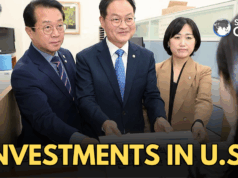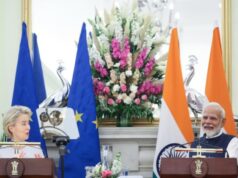NEW DELHI: On ‘Talking Point‘, Ambassador Navdeep Suri, Former India Envoy to UAE, Egypt, Australia in conversation with StratNews Global Associate Editor Amitabh P. Revi. Ambassador Suri discusses India, the U.S., the UAE, Saudi Arabia, France, Germany, Italy and the European Union signing a Memorandum of Understanding (MoU) during the G20 Summit in Delhi to establish the India-Middle East-Europe Economic Corridor (IMEC). He explains the nuances, pros and cons of using Fujairah(bypassing the Hormuz Strait chokepoint) and/or the Jebel Ali ports in the UAE as hubs for the multi-mode transhipment of goods. On IMEC vs China’s Belt and Road Initiative(BRI) as a modern mirror to the ancient spice route and silk road, the former envoy observes, “India shouldn’t be dependent on any Chinese sponsored arteries”, since it “cuts into our strategic autonomy”, and “creates dependencies we don’t want to encourage”. While pointing out that “if IMEC is not commercially viable, it won’t succeed like many Chinese BRI projects, the Distinguished Fellow at the Observer Research Foundation(ORF) says,”IMEC is much more than just a trade corridor, since its framework is also looking at clean hydrogen energy, electricity & power pipelines”. Though “these are futuristic ideas”, he “thinks it’s important that we look at the creative side of this and say, where’s the word heading? Not where it is in 2023, but where it will be in 2033, 2043 and beyond”. Watch this discussion for more on Ambassador Suri’s analysis of the players involved, the U.S. role, the economic feasibility of multi-mode transhipment, the regional and global geopolitical flux, far reaching changes in West Asia, Saudi Crown Prince and Prime Minister Mohammed bin Salman’s(MbS) state visit, multi-alignment, strategic autonomy, India elevating its partnership with Greece, the comprehensive economic partnership(CEPA) with the UAE, free trade(FTA) negotiations with the Gulf countries(GCC) and the European Union, the potential to enlarge IMEC to south east asia(ASEAN) and the movement to trade payment in national currencies.




